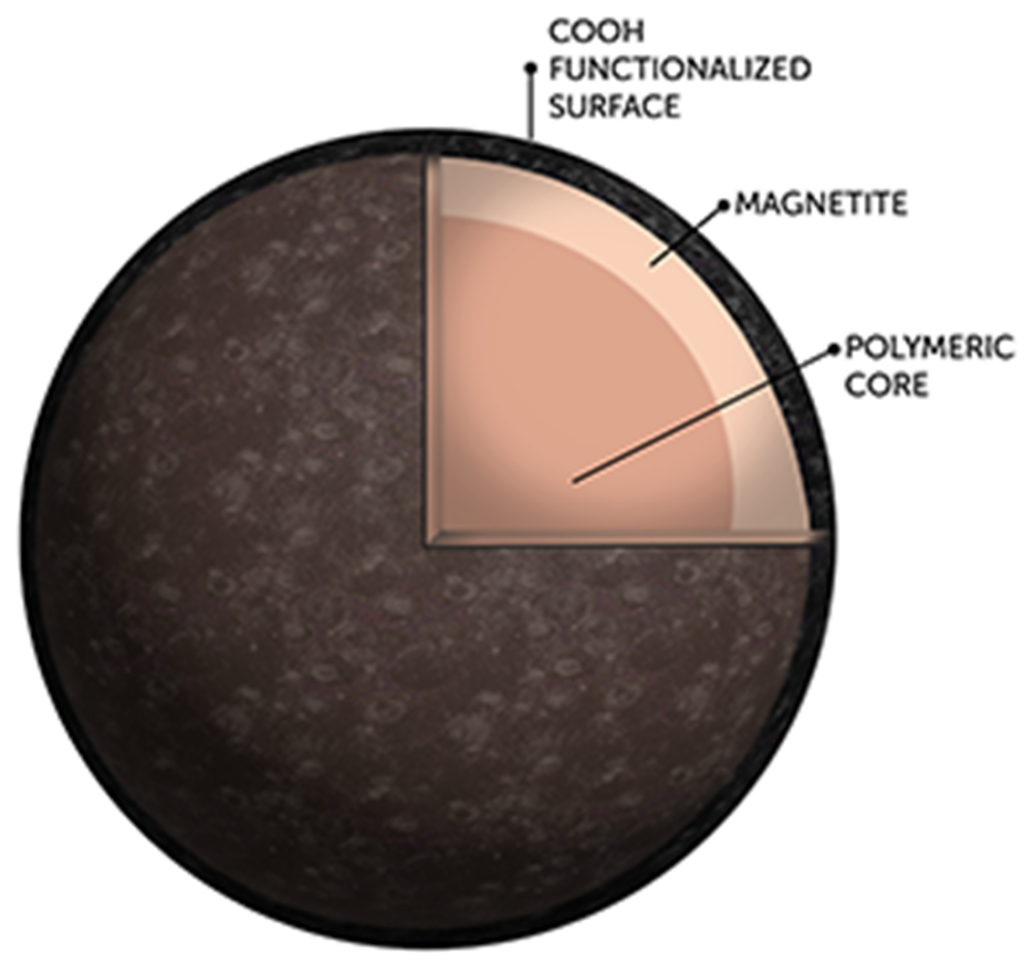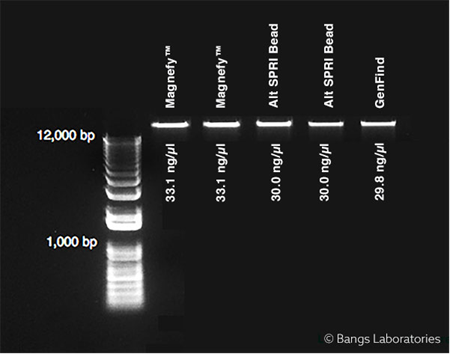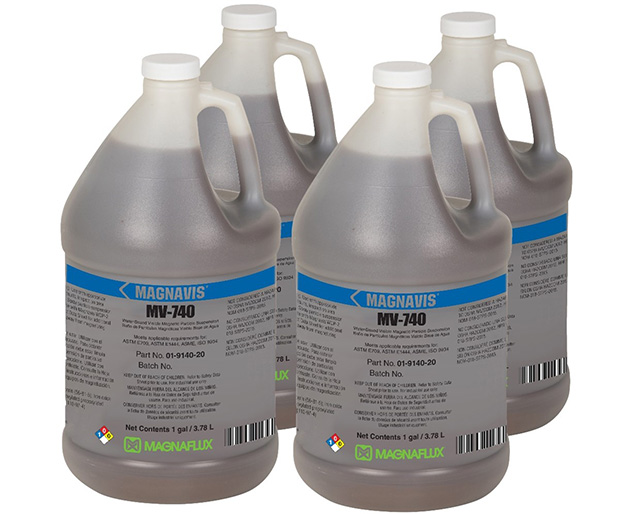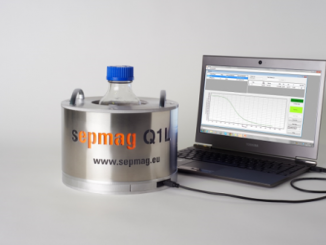
Bangs Laboratories, a developer of magnetic microparticles for life science separations, has added a large new polymer microsphere with internal magnetic layers to its portfolio of magnetic beads. Aptly called Magzilla, the surface of the 30µm magnetic particles contains carboxyl groups for the covalent attachment of a ligand or nucleic acid making it suitable for a variety of applications including single bead and well assays or genetic sequencing.
Magzilla stands out as a giant compared to the company’s earlier launch of Streptavidin Magnefy superparamagnetic microspheres which brought a new capability for immobilizing biotinylated antibodies or other proteins, capturing biotinylated PCR products or binding biotinylated ssDNA or dsDNA for downstream applications.

As reported earlier in Magnetics Magazine, the ~1µm Magnefy beads superparamagnetic microspheres have a rapid separation profile, offering a performance-driven solid phase for magnetic particle-based applications including SPRI-based total DNA isolation, also molecular and immunoassays. SPRI (Solid Phase Reversible Immobilization) bead technology uses paramagnetic beads to selectively bind nucleic acids by type and size, and is employed for high-performance isolation, purification and cleanup protocols in biotech laboratories. The product has broad application to assay development and for focused use in nucleic acid isolation.
Many types of magnetic particles are used in bioassays and separations. While their superparamagnetic properties may be similarly amenable to automation and high-throughput workflows, their specific physical and optical characteristics permit the development of highly tailored reagents for specific assay systems, formats, and platforms. The microspheres from Bangs are comprised of a proprietary polymer core with an iron oxide layer and carboxylated polymer encapsulation.
The company manufactures an extensive portfolio of uniform polymer, silica and magnetic microsphere products for diagnostic, research and flow cytometry applications. It also makes specialty products to support validation and QC programs for analytical instruments, including a broad portfolio of fluorescent, count, size and cell viability standards and can provide customization, OEM and bulk manufacturing capabilities. For more info, see www.bangslabs.com.



